Roman Britain 43-410 AD Important Names Gaius Julius

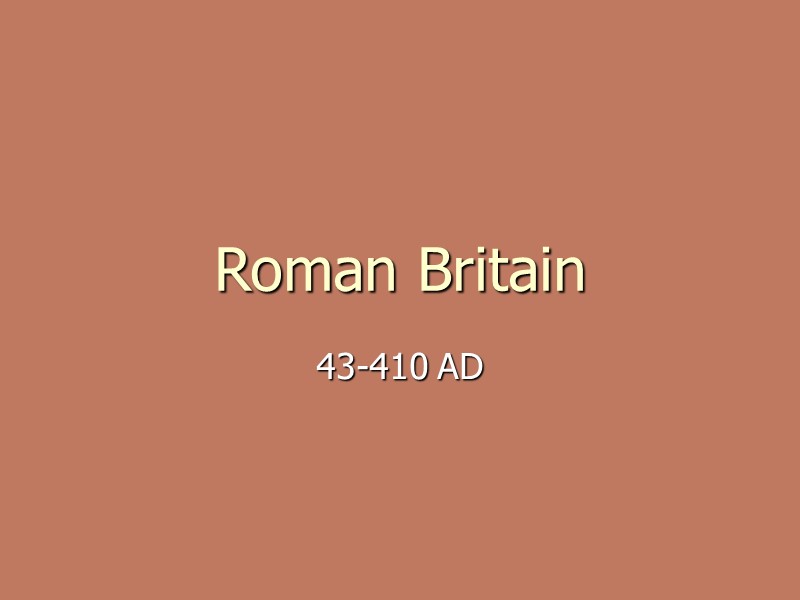
Roman Britain 43-410 AD
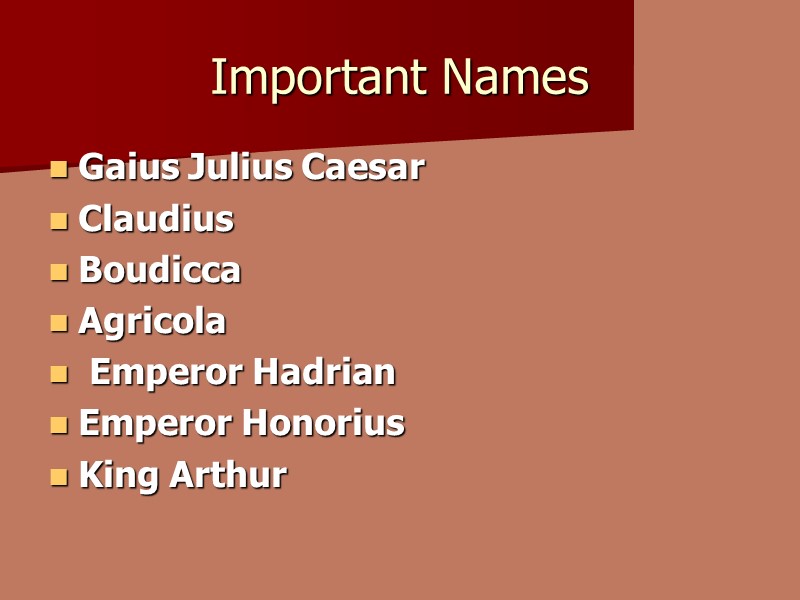
Important Names Gaius Julius Caesar Claudius Boudicca Agricola Emperor Hadrian Emperor Honorius King Arthur
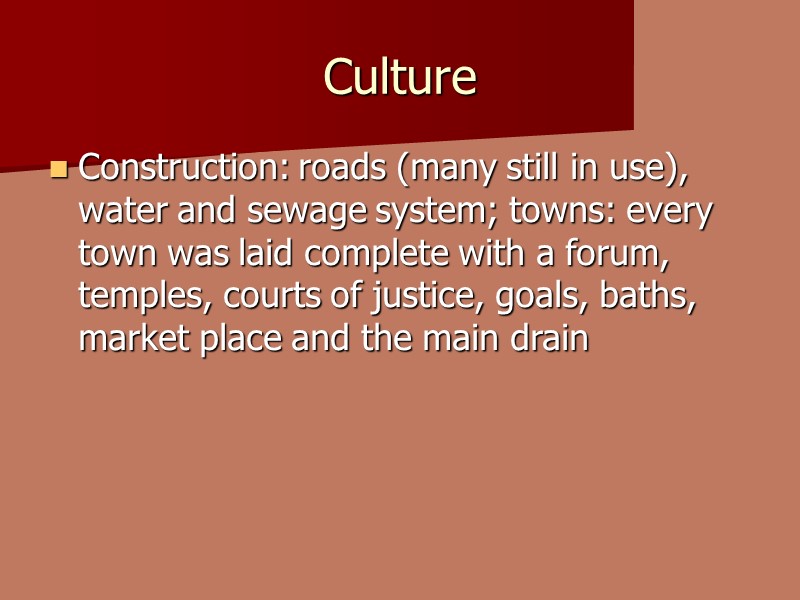
Culture Construction: roads (many still in use), water and sewage system; towns: every town was laid complete with a forum, temples, courts of justice, goals, baths, market place and the main drain
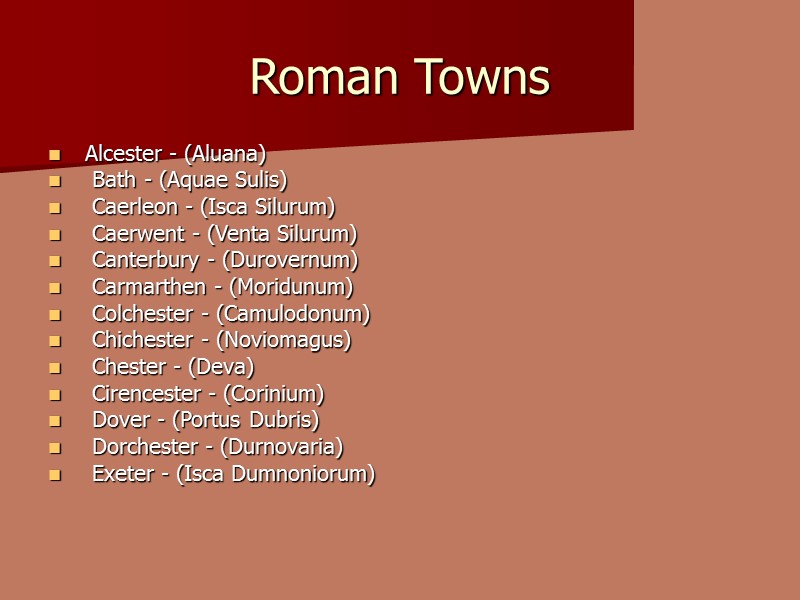
Roman Towns Alcester - (Aluana) Bath - (Aquae Sulis) Caerleon - (Isca Silurum) Caerwent - (Venta Silurum) Canterbury - (Durovernum) Carmarthen - (Moridunum) Colchester - (Camulodonum) Chichester - (Noviomagus) Chester - (Deva) Cirencester - (Corinium) Dover - (Portus Dubris) Dorchester - (Durnovaria) Exeter - (Isca Dumnoniorum)
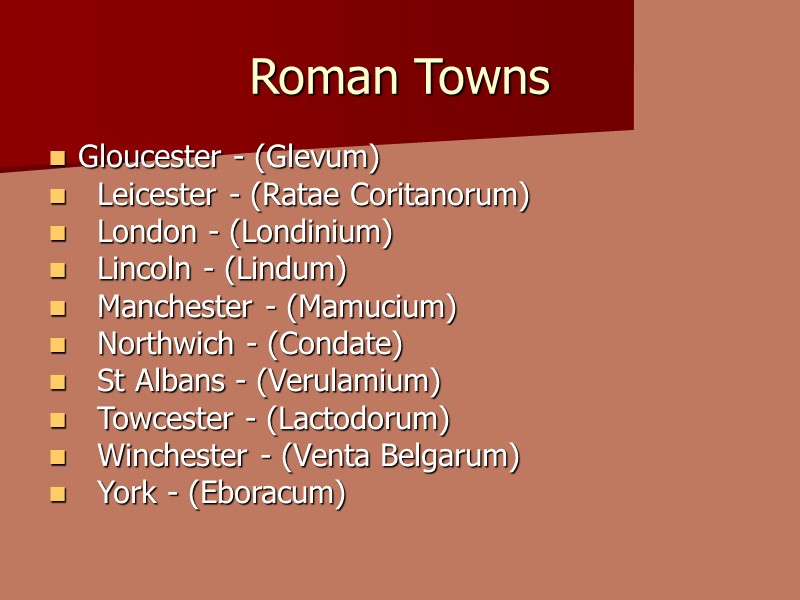
Roman Towns Gloucester - (Glevum) Leicester - (Ratae Coritanorum) London - (Londinium) Lincoln - (Lindum) Manchester - (Mamucium) Northwich - (Condate) St Albans - (Verulamium) Towcester - (Lactodorum) Winchester - (Venta Belgarum) York - (Eboracum)
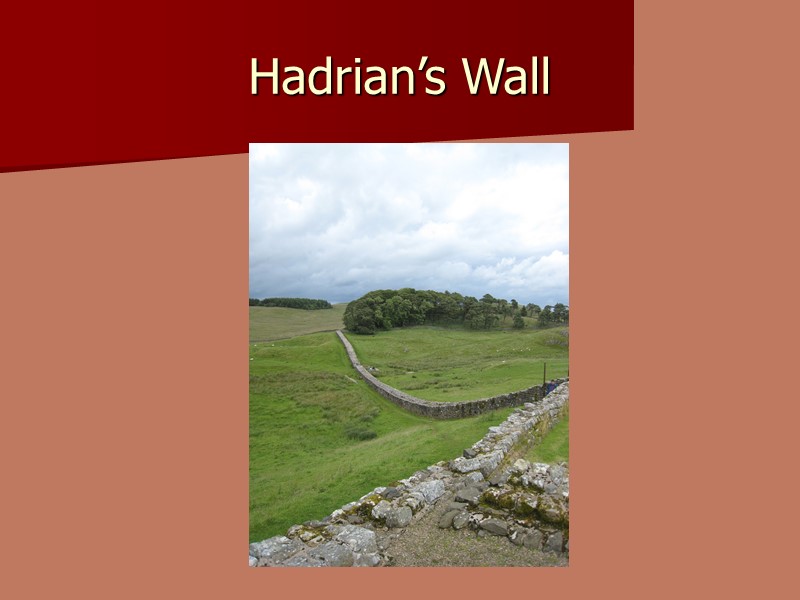
Hadrian’s Wall
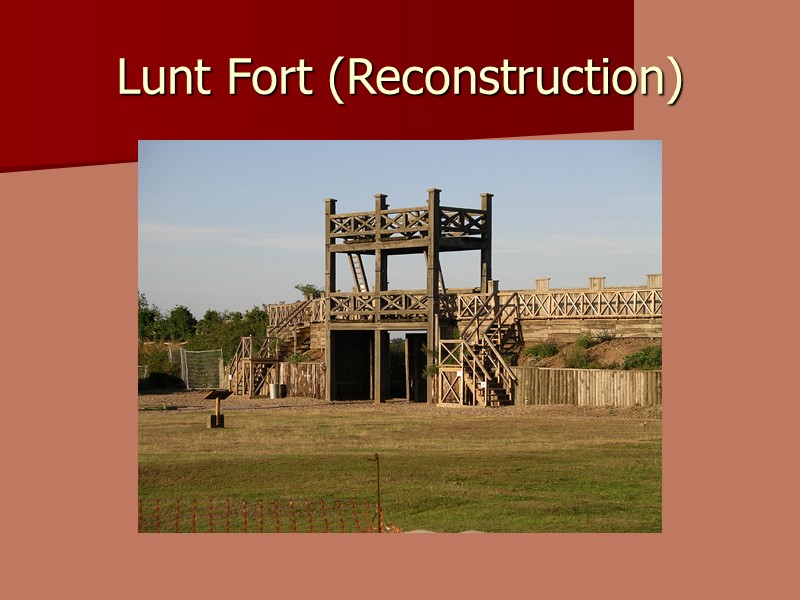
Lunt Fort (Reconstruction)
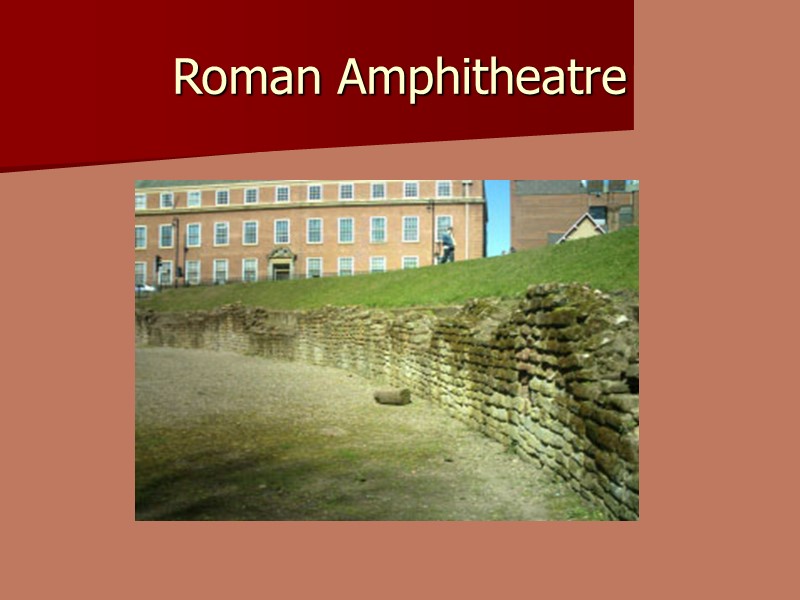
Roman Amphitheatre
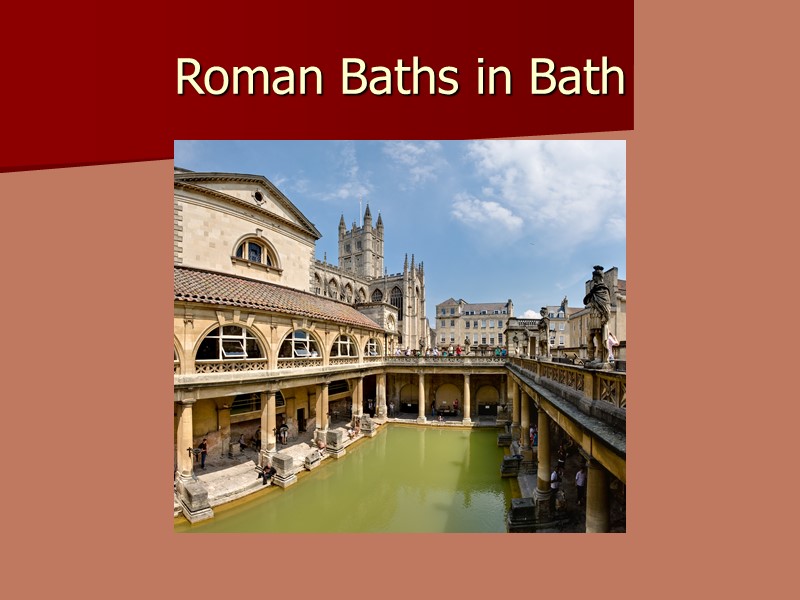
Roman Baths in Bath
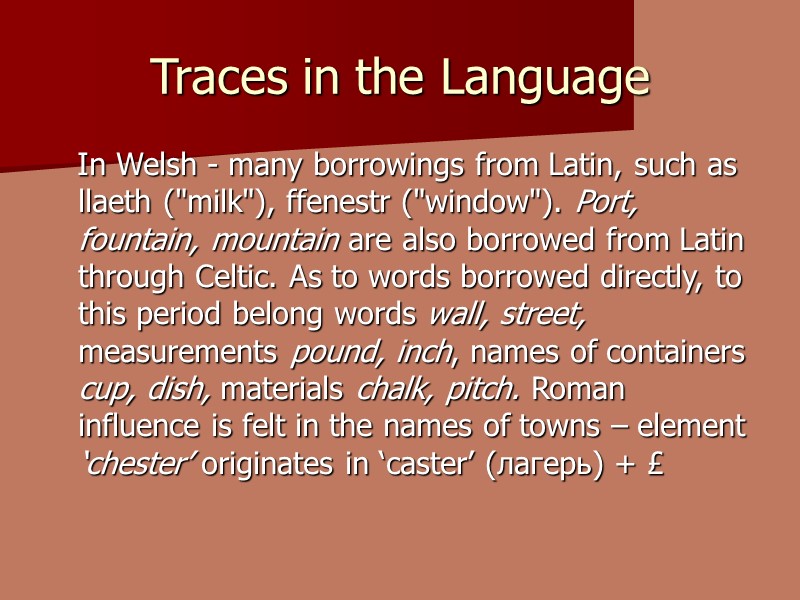
Traces in the Language In Welsh - many borrowings from Latin, such as llaeth ("milk"), ffenestr ("window"). Port, fountain, mountain are also borrowed from Latin through Celtic. As to words borrowed directly, to this period belong words wall, street, measurements pound, inch, names of containers cup, dish, materials chalk, pitch. Roman influence is felt in the names of towns – element ‘chester’ originates in ‘caster’ (лагерь) + £
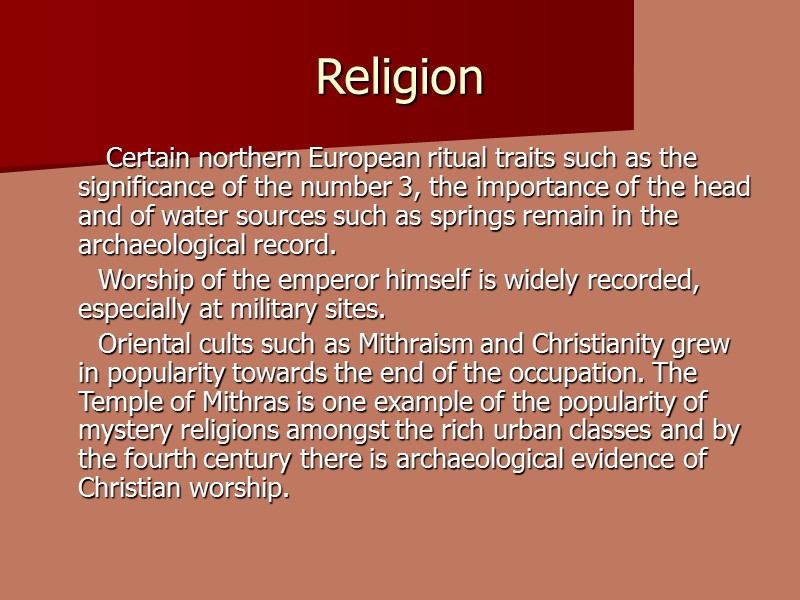
Religion Certain northern European ritual traits such as the significance of the number 3, the importance of the head and of water sources such as springs remain in the archaeological record. Worship of the emperor himself is widely recorded, especially at military sites. Oriental cults such as Mithraism and Christianity grew in popularity towards the end of the occupation. The Temple of Mithras is one example of the popularity of mystery religions amongst the rich urban classes and by the fourth century there is archaeological evidence of Christian worship.
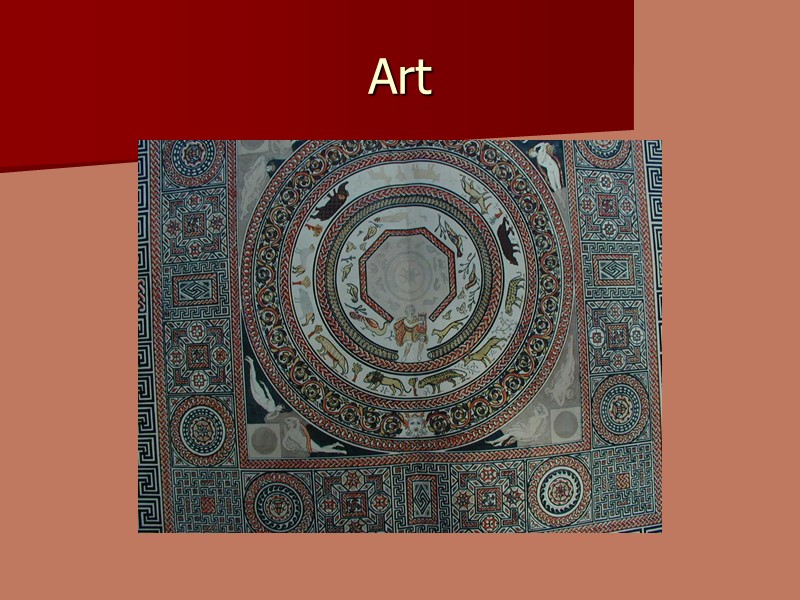
Art
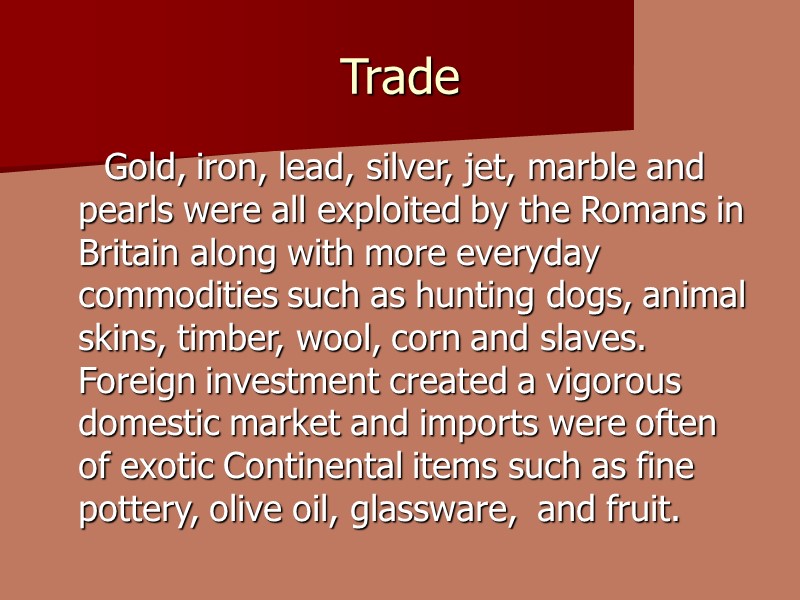
Trade Gold, iron, lead, silver, jet, marble and pearls were all exploited by the Romans in Britain along with more everyday commodities such as hunting dogs, animal skins, timber, wool, corn and slaves. Foreign investment created a vigorous domestic market and imports were often of exotic Continental items such as fine pottery, olive oil, glassware, and fruit.

Provincial government Imperial provinces were run by resident governors who were former senators and had held the consulship. These men were carefully selected often having strong records of military success and administrative ability.

Financial Administration Financial administration was dealt with by a procurator with junior posts for each tax-raising power. Each legion in Britain had a commander who answered to the governor and in time of war probably directly ruled troublesome districts. Below these posts was a network of administrative managers covering intelligence gathering, sending reports to Rome, organising military supplies and dealing with prisoners.
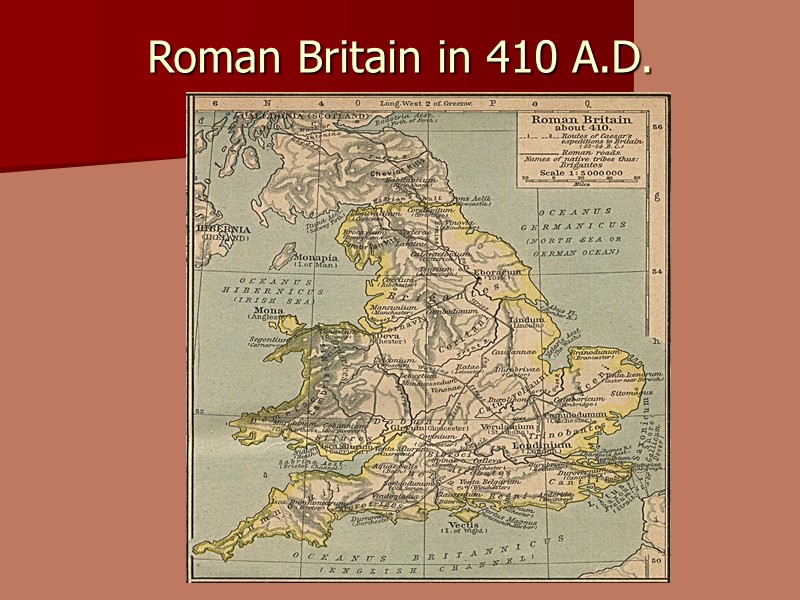
Roman Britain in 410 A.D.
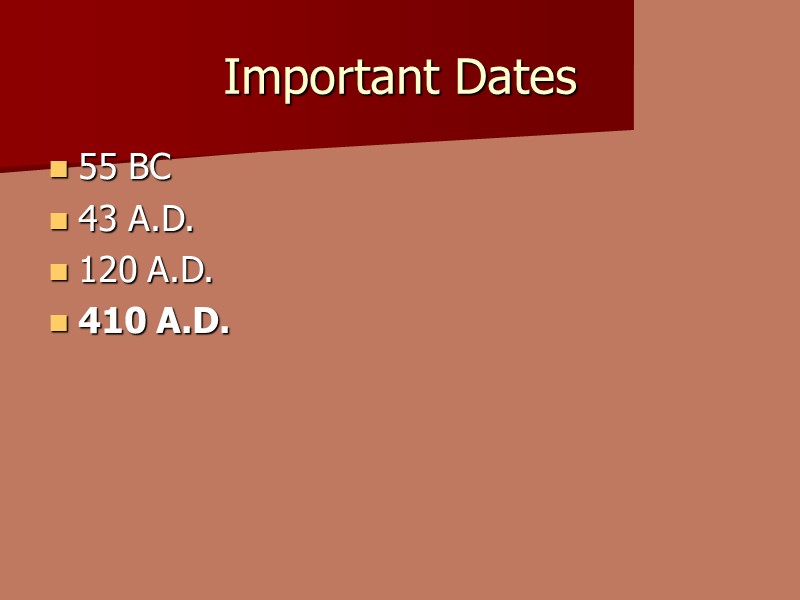
Important Dates 55 BC 43 A.D. 120 A.D. 410 A.D.
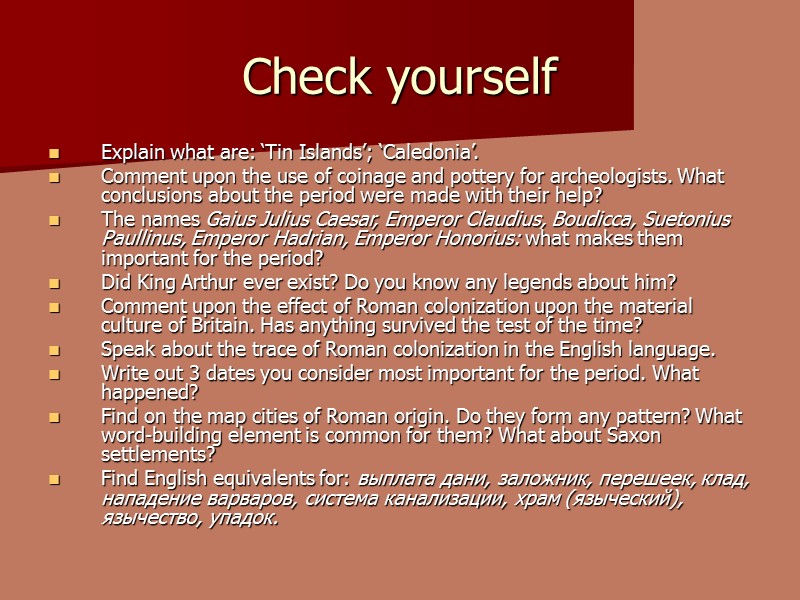
Check yourself Explain what are: ‘Tin Islands’; ‘Caledonia’. Comment upon the use of coinage and pottery for archeologists. What conclusions about the period were made with their help? The names Gaius Julius Caesar, Emperor Claudius, Boudicca, Suetonius Paullinus, Emperor Hadrian, Emperor Honorius: what makes them important for the period? Did King Arthur ever exist? Do you know any legends about him? Comment upon the effect of Roman colonization upon the material culture of Britain. Has anything survived the test of the time? Speak about the trace of Roman colonization in the English language. Write out 3 dates you consider most important for the period. What happened? Find on the map cities of Roman origin. Do they form any pattern? What word-building element is common for them? What about Saxon settlements? Find English equivalents for: выплата дани, заложник, перешеек, клад, нападение варваров, система канализации, храм (языческий), язычество, упадок.
26800-roman_britain.ppt
- Количество слайдов: 18

